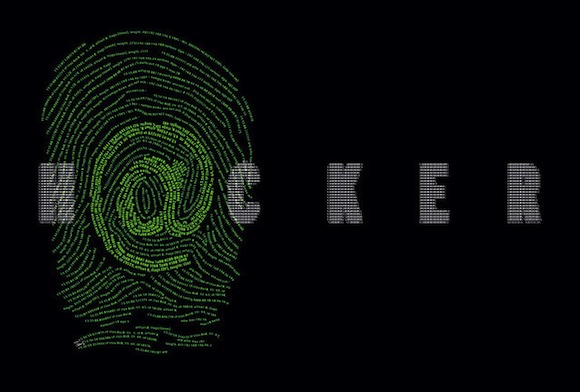
The word “hacker” might bring to mind the motley crew of the 1995 film Hackers, or else a number of high-profile cyberattacks resulting in everything from compromised email addresses to a massive Sony data leak. Recently, however, cybersecurity measures are proving that not all hackers are created equal.
Starting in early 2015, the Japanese government will begin recruiting personnel for a fledgling team of “white hat” hackers. Unlike their counterparts on the other side of the law, these computer experts will bring their skills to bear in identifying and protecting against potential security threats.
January of this year marked the birth of the National Center of Incident Readiness and Strategy for Cybersecurity (NISC) under the directorship of Assistant Chief Cabinet Secretary Takamizawa Nobushige. The center will serve as the base of operations for the cybersecurity force, which began accepting applications from the private sector in the same month and is currently screening candidates. Recruits will eventually swell to around 10, with an additional staff of over 100. The former will serve as government employees for up to five years.
According to a report from Kyodo News, Japan’s National Institute of Information and Communications Technology (NICT) logged 25.66 billion attempted cyberattacks against the Japanese government and other domestic institutions in 2014 (this includes attacks purposely carried out to assess system security).
The NICT noted that many of the attacks were attempts at gaining control of routers and security cameras. Furthermore, among traceable cyberattacks, 40 percent originated in China, with Russia, South Korea, and the United States also accounting for a large portion.
Given the growing emphasis on cybersecurity, the aforementioned white hat hackers will prove important than ever. Though the CBS show CSI: Cyber portrays one such hacker, the character Brody Nelson, as a reformed criminal turned good guy, such cases are probably the exception to the rule.
That being said, Japan does appear to understand the appeal of criminal activity for technology wizards, especially among the younger generation. Back in early February, Tokyo hosted a global cybersecurity competition named SECCON. The event drew 4,186 participants and was intended as a platform for Japanese hackers to test their skills against teams from other countries.
Regarding the purpose of the competition, the head of the organizing committee, Yoshinori Takesako, said, “There is a need for a forum where fledgling, young … hackers can grow and gain understanding of their families, schools and the outside world. This is important in order to keep them away from being pulled into the underground world.”
With the NISC only just beginning to take shape, these young hackers may well be joining its ranks somewhere in the not-too-distant future.
Sources: [Yahoo Japan] via Hachima Kikou, The Japan Times, Channel NewsAsia, Daily Sabah
Feature images: Flickr/Charis Tsevis

 Ghost in the Shell: Stand Alone Complex collaborates with agencies to promote cybersecurity
Ghost in the Shell: Stand Alone Complex collaborates with agencies to promote cybersecurity Tokyo Olympic Committee trains 220 “hackers” to protect games
Tokyo Olympic Committee trains 220 “hackers” to protect games Inside the luxury Chinese hotel where North Korea keeps its army of hackers
Inside the luxury Chinese hotel where North Korea keeps its army of hackers This old Nintendo game quadrupled in price in just a week
This old Nintendo game quadrupled in price in just a week Japanese film “Behind THE COVE” defends whaling and dolphin-hunting, screens in the U.S.【Video】
Japanese film “Behind THE COVE” defends whaling and dolphin-hunting, screens in the U.S.【Video】 Foreigner’s request for help in Tokyo makes us sad for the state of society
Foreigner’s request for help in Tokyo makes us sad for the state of society Harajuku Station’s beautiful old wooden building is set to return, with a new complex around it
Harajuku Station’s beautiful old wooden building is set to return, with a new complex around it Ghibli Park now selling “Grilled Frogs” from food cart in Valley of Witches
Ghibli Park now selling “Grilled Frogs” from food cart in Valley of Witches Japanese city loses residents’ personal data, which was on paper being transported on a windy day
Japanese city loses residents’ personal data, which was on paper being transported on a windy day Historical figures get manga makeovers from artists of Spy x Family, My Hero Academia and more
Historical figures get manga makeovers from artists of Spy x Family, My Hero Academia and more Akihabara pop-up shop sells goods made by Japanese prison inmates
Akihabara pop-up shop sells goods made by Japanese prison inmates Red light district sushi restaurant in Tokyo shows us just how wrong we were about it
Red light district sushi restaurant in Tokyo shows us just how wrong we were about it Japan’s massive matcha parfait weighs 6 kilos, contains hidden surprises for anyone who eats it
Japan’s massive matcha parfait weighs 6 kilos, contains hidden surprises for anyone who eats it Sandwiches fit for a sumo served up in Osaka【Taste Test】
Sandwiches fit for a sumo served up in Osaka【Taste Test】 Anime girl English teacher Ellen-sensei becomes VTuber/VVTUber and NFT
Anime girl English teacher Ellen-sensei becomes VTuber/VVTUber and NFT McDonald’s new Happy Meals offer up cute and practical Sanrio lifestyle goods
McDonald’s new Happy Meals offer up cute and practical Sanrio lifestyle goods Japanese ramen restaurants under pressure from new yen banknotes
Japanese ramen restaurants under pressure from new yen banknotes All-you-can-drink Starbucks and amazing views part of Tokyo’s new 170 meter-high sky lounge
All-you-can-drink Starbucks and amazing views part of Tokyo’s new 170 meter-high sky lounge French Fries Bread in Tokyo’s Shibuya becomes a hit on social media
French Fries Bread in Tokyo’s Shibuya becomes a hit on social media Studio Ghibli releases new action figures featuring Nausicaä of the Valley of the Wind characters
Studio Ghibli releases new action figures featuring Nausicaä of the Valley of the Wind characters New private rooms on Tokaido Shinkansen change the way we travel from Tokyo to Kyoto
New private rooms on Tokaido Shinkansen change the way we travel from Tokyo to Kyoto Studio Ghibli glasses cases let anime characters keep an eye on your spectacles
Studio Ghibli glasses cases let anime characters keep an eye on your spectacles Tokyo Tsukiji fish market site to be redeveloped with 50,000-seat stadium, hotel, shopping center
Tokyo Tsukiji fish market site to be redeveloped with 50,000-seat stadium, hotel, shopping center Beautiful Ghibli sealing wax kits let you create accessories and elegant letter decorations【Pics】
Beautiful Ghibli sealing wax kits let you create accessories and elegant letter decorations【Pics】 Studio Ghibli releases Kiki’s Delivery Service chocolate cake pouches in Japan
Studio Ghibli releases Kiki’s Delivery Service chocolate cake pouches in Japan New definition of “Japanese whiskey” goes into effect to prevent fakes from fooling overseas buyers
New definition of “Japanese whiskey” goes into effect to prevent fakes from fooling overseas buyers Our Japanese reporter visits Costco in the U.S., finds super American and very Japanese things
Our Japanese reporter visits Costco in the U.S., finds super American and very Japanese things Studio Ghibli unveils Mother’s Day gift set that captures the love in My Neighbour Totoro
Studio Ghibli unveils Mother’s Day gift set that captures the love in My Neighbour Totoro New Japanese KitKat flavour stars Sanrio characters, including Hello Kitty
New Japanese KitKat flavour stars Sanrio characters, including Hello Kitty More foreign tourists than ever before in history visited Japan last month
More foreign tourists than ever before in history visited Japan last month New Pokémon cakes let you eat your way through Pikachu and all the Eevee evolutions
New Pokémon cakes let you eat your way through Pikachu and all the Eevee evolutions Sales of Japan’s most convenient train ticket/shopping payment cards suspended indefinitely
Sales of Japan’s most convenient train ticket/shopping payment cards suspended indefinitely Sold-out Studio Ghibli desktop humidifiers are back so Totoro can help you through the dry season
Sold-out Studio Ghibli desktop humidifiers are back so Totoro can help you through the dry season Japanese government to make first change to romanization spelling rules since the 1950s
Japanese government to make first change to romanization spelling rules since the 1950s Ghibli founders Toshio Suzuki and Hayao Miyazaki contribute to Japanese whisky Totoro label design
Ghibli founders Toshio Suzuki and Hayao Miyazaki contribute to Japanese whisky Totoro label design Doraemon found buried at sea as scene from 1993 anime becomes real life【Photos】
Doraemon found buried at sea as scene from 1993 anime becomes real life【Photos】 Tokyo’s most famous Starbucks is closed
Tokyo’s most famous Starbucks is closed One Piece characters’ nationalities revealed, but fans have mixed opinions
One Piece characters’ nationalities revealed, but fans have mixed opinions We asked a Uniqlo employee what four things we should buy and their suggestions didn’t disappoint
We asked a Uniqlo employee what four things we should buy and their suggestions didn’t disappoint Princesses, fruits, and blacksmiths: Study reveals the 30 most unusual family names in Japan
Princesses, fruits, and blacksmiths: Study reveals the 30 most unusual family names in Japan Okayama police academy instructor stabs recruit in chest during training
Okayama police academy instructor stabs recruit in chest during training Chinese E-cigarettes might be wreaking more havoc on your computer than on your lungs
Chinese E-cigarettes might be wreaking more havoc on your computer than on your lungs Tokyo women’s university will accept transgender students who identify as female, a Japan first
Tokyo women’s university will accept transgender students who identify as female, a Japan first Kyoto Animation arson attack leads Japanese government to develop stricter gas sale regulations
Kyoto Animation arson attack leads Japanese government to develop stricter gas sale regulations Expert gamer builds and beats most insane Super Mario Maker level yet 【Video】
Expert gamer builds and beats most insane Super Mario Maker level yet 【Video】 Pikachu Van Gogh Pokémon card pulled from museum promotion for “safety and security” reasons
Pikachu Van Gogh Pokémon card pulled from museum promotion for “safety and security” reasons Japanese shipping giant planning to start autonomous cargo ships by 2025
Japanese shipping giant planning to start autonomous cargo ships by 2025 Japanese politician’s birthrate plan: Have parents nag their kids to have “at least three babies”
Japanese politician’s birthrate plan: Have parents nag their kids to have “at least three babies” Japanese university graduate students solve 2,000 year mathematical problem
Japanese university graduate students solve 2,000 year mathematical problem Japan’s ‘agri-tech’ farming revolution
Japan’s ‘agri-tech’ farming revolution Live-action Cowboy Bebop cast revealed by Netflix, but there’s someone missing from the crew
Live-action Cowboy Bebop cast revealed by Netflix, but there’s someone missing from the crew Kyoto Animation arson attack prompts call for stricter gas sale regulations in Kyoto
Kyoto Animation arson attack prompts call for stricter gas sale regulations in Kyoto Man in charge of cybersecurity for 2020 Olympics has never touched a computer
Man in charge of cybersecurity for 2020 Olympics has never touched a computer Harsh retribution for school bullies using Japanese law suggested on Twitter, but it’ll take time
Harsh retribution for school bullies using Japanese law suggested on Twitter, but it’ll take time Pokémon’s Team Rocket officially begins real-life recruiting new members this month
Pokémon’s Team Rocket officially begins real-life recruiting new members this month 74-year-old Japanese politician starts Instagram account for open dialog about COVID-19
74-year-old Japanese politician starts Instagram account for open dialog about COVID-19
Leave a Reply